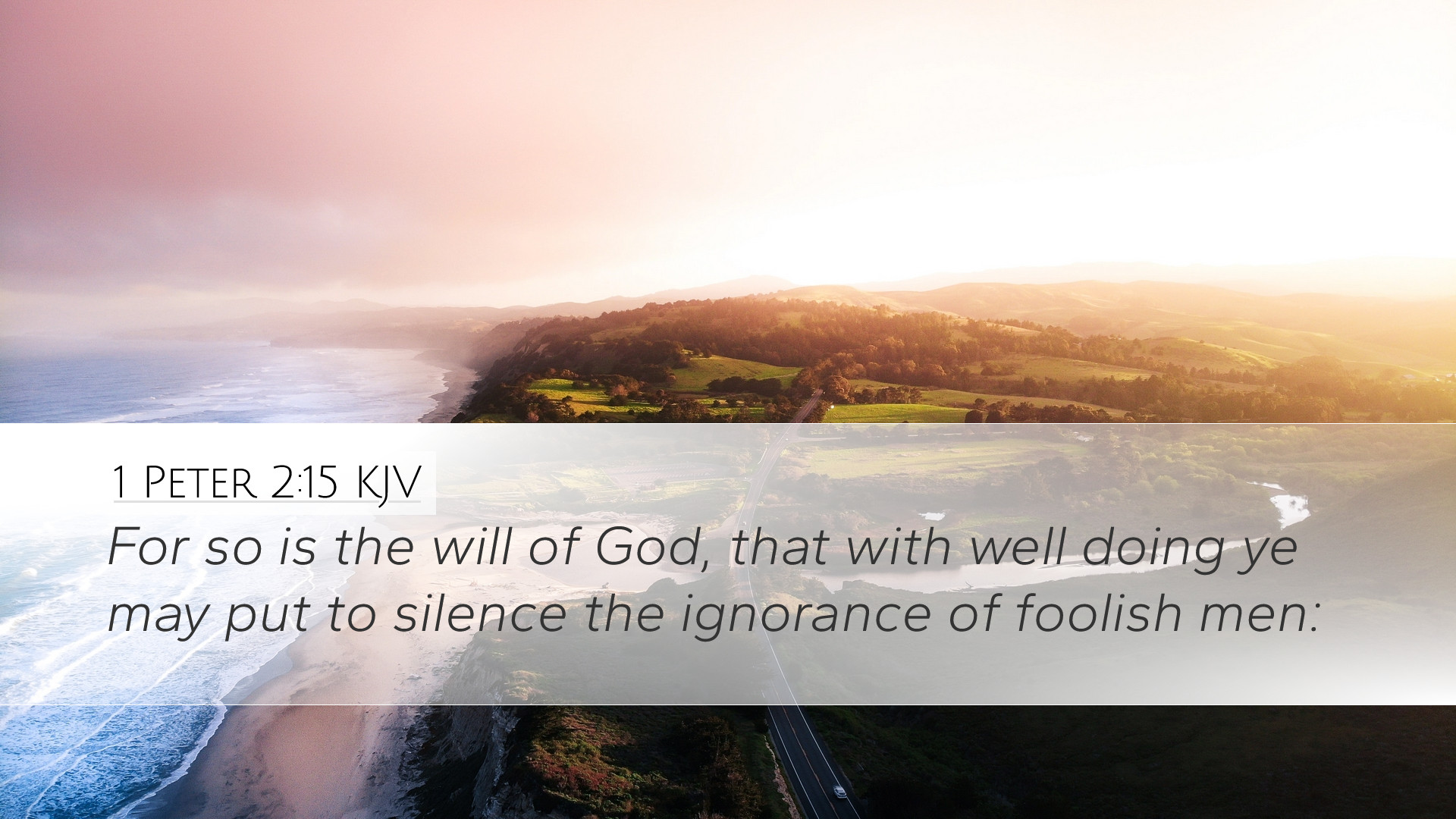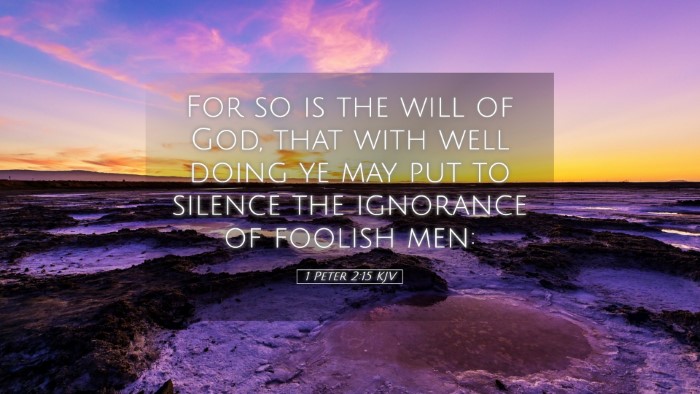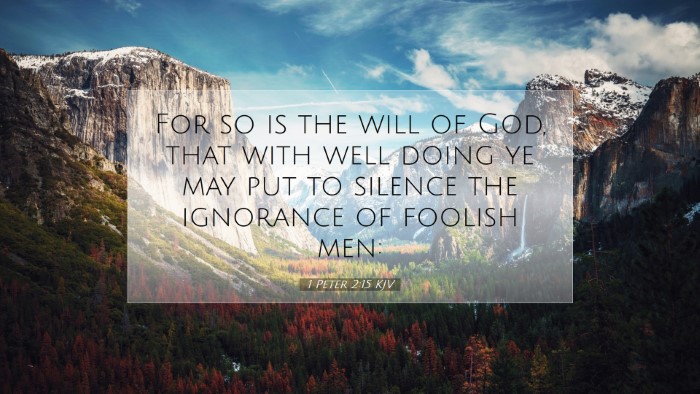Commentary on 1 Peter 2:15
Verse: "For this is the will of God, that by doing good you should put to silence the ignorance of foolish people."
Introduction
This verse encapsulates a profound directive from the Apostle Peter that addresses both the conduct of believers and the broader implications of their actions in the society they inhabit. The verse speaks to the theme of Christian witness through good works, and its relevance extends beyond the historical context of Peter's audience to believers today.
Contextual Background
The Apostle Peter wrote this epistle to Christians facing trials and persecution. The early church was often misunderstood, labeled as subversive and immoral by the surrounding society. In this light, Peter encourages believers to live exemplary lives that would shame their critics and illuminate the truth of the Gospel.
Historical Context
During the time of Peter's writing, Christians were often marginalized. Their beliefs clashed with popular pagan practices, leading to accusations of treachery against the state and immorality. Peter's exhortation to do good serves as a counter-response to these claims, urging believers to reflect Christ's character in their interactions with the world.
Exegesis and Theological Insights
The Will of God
“For this is the will of God” indicates a divine imperative. The pursuit of good works is not merely optional for the Christian; it is a clear expression of God's will. Matthew Henry emphasizes that knowing the will of God is foundational for moral living, as true obedience is guided by an understanding of divine intent.
Conduct as Witness
The phrase “that by doing good” underscores the practical aspect of faith. Albert Barnes points out that good works serve as a testament to the transformative power of the Gospel. Peter emphasizes that the actions of believers can disarm accusations and silence ignorance, illustrating how the ethical life of a Christian can serve as a witness to Christ.
Silencing Ignorance
Peter’s assertion that good conduct will “put to silence the ignorance of foolish people” highlights a powerful theme of non-verbal witness. Adam Clarke notes that the behavior of Christians is more eloquent than spoken defense. When believers act justly and mercifully, they effectively counter the false narratives that critics spin.
Practical Applications
Believers today are urged to adopt a lifestyle that reflects Christ’s goodness. Here are some practical applications:
- Engagement in Community: Christians are called to actively participate in their communities, lending their support to initiatives that promote social justice, charity, and mercy.
- Reflection of Christ’s Character: Conduct in both public and private spheres should exemplify the qualities of integrity, kindness, and righteousness.
- Response to Accusations: Rather than engaging in defensive rhetoric, believers are encouraged to let their actions speak volumes, thereby transforming perceptions through the demonstration of their faith.
Theological Implications
This verse highlights significant theological implications regarding the relationship between faith and works. It aligns with the overarching biblical narrative that emphasizes that genuine faith manifests itself in good works (James 2:17). Good works are not a means to earn salvation but a response to the grace received through faith.
Grace and Obedience
Soteriology is also affected, as understanding the relationship between faith and works shapes a believer's response to God’s grace. Henry comments that good works are the proof of a heart transformed by divine love. Thus, this verse acts as a reminder that although believers face challenges, their good deeds serve not only to glorify God but also to witness to a watching world.
Conclusion
1 Peter 2:15 serves as a timeless exhortation for believers to embody the quintessence of the Christian faith through their actions. By committing to doing good, Christians fulfill the will of God and stand as a testament to Christ's transformative power in their lives. In a world rife with misunderstanding and hostility, good works emerge as a powerful counter-narrative that can silence foolishness and pave the way for the Gospel's truth to be heard.


